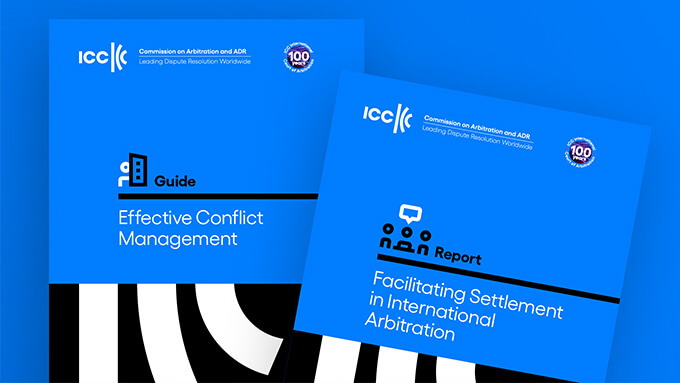Amendments Introduced through Law No. 7101 on Arbitration Proceedings
State courts have very important functions concerning arbitration proceedings. These functions may aim to provide assistance to arbitration proceedings, such as collection of evidence through state courts, which would support the functions of the tribunal, or functions aimed at supervision of arbitration proceedings, such as set-aside actions. The legal provisions regulating these functions play an important role in the determination of whether a particular state has an arbitration-friendly legislation.
Important amendments pertaining to the proceedings to be conducted by Turkish courts related to arbitration proceedings have been introduced through Law numbered 7101 on Amendment of the Enforcement and Bankruptcy Law and Certain Laws[1] (“Law”). Accordingly, the provisions regulating domestic and international arbitrations have been harmonized. Additionally, provisions reflecting current international arbitration practices have been adopted. The amendments introduced through the Law shall be analyzed in this article.
In General
Firstly, the Law primarily introduces important amendments to Enforcement and Bankruptcy Law numbered 2004 (“EBL”). These amendments shall not be analyzed in depth in this article; however, it is worth emphasizing the provisions on the abolishment of postponement of bankruptcy, amendments on the provisions regulating the concordat, modifications on the provisions on priority of receivables under Art. 206 of the EBL, and introduction of compulsory electronic notifications concerning the natural and legal persons set forth under Art. 7/a of Notification Law numbered 7201[2].
The amendments made through the Law which is analyzed in this article pertain to provisions of International Arbitration Act numbered 4686 (“IAA”) and the Code of Civil Procedure numbered 6100 (“CCP”) regulating arbitrations.
Amendments Pertaining to Competent Courts under the IAA
One of the important amendments introduced through the Law is the modification of the competent courts in set-aside proceedings under the IAA.
Pursuant to the provision under the IAA prior to this amendment, the competent court in set-aside proceedings was the civil court of first instance. In addition to this provision, through the amendment introduced by Law No. 6545[3] to Art. 5 of the Law on Establishment, Jurisdiction and Competence of Civil Courts of First Instance and Regional Courts of Appeal, it has been regulated that the set-aside actions pertaining to arbitration proceedings under the IAA shall be heard by a panel of judges comprised of one chairman and two members. Pursuant to these provisions, prior to the amendment of the IAA, the competent courts for set-aside actions were the commercial courts of first instance.
With the amendment made to Art. 15/A/1 of the IAA through the Law, the regional court of appeal, which is competent as per the location of the civil court of first instance pursuant to Art. 3 of the IAA[4], has been determined as the competent court for set-aside actions.
With this provision, the set-aside actions to be initiated under the IAA shall be heard before the regional courts of appeal, and not the first instance court. It should be emphasized that this provision is in line with current international arbitration practice. More specifically, in international arbitration practice, the legislation in France, Switzerland, and Germany provide provisions stating that set-aside actions shall be heard by courts of appeal. For instance, in France, the set-aside actions to be filed against arbitral awards shall be heard by the court of appeal (Cour d’Appel) located at the place of arbitration[5]. Similarly, in Switzerland, the Swiss Federal Court has competence to set-aside actions[6]. Lastly, in Germany, in lawsuits related to arbitration to be filed before state courts, including set-aside actions, the High Regional Court (Oberlandesgericht, OLG) has jurisdiction[7]. Under German law, the reason why courts of second instance have jurisdiction concerning the lawsuits on arbitration proceedings to be filed before state courts is that the functions that the courts of first instance would normally assume are undertaken by the arbitral tribunal during arbitration proceedings[8]. Accordingly, the lawsuits to be filed before state courts would be finalized in a faster and more efficient manner.
In light of our explanations, the provision setting forth that the regional courts of appeal would be competent in set-aside actions concerning arbitral awards is a very positive development.
Right of Appeal against the Decisions to be given in Set-aside Actions under the IAA
Through the amendment of Art. 15/A/7 of the IAA made by the Law, the decisions to be given in set-aside actions may be subject to appeal proceedings under the CCP. Pursuant to the provision prior to this amendment, it was possible to file an appeal against these decisions pursuant to Code of Civil Procedure numbered 1086; however, it was not possible to file for revision of decision.
Subsequent to the regional courts of appeal starting to operate, the provisions of Code of Civil Procedure numbered 1086 on appeal proceedings have ceased to be applied. With the amendments made by the Law to the IAA, it has been taken into consideration that the CCP does not regulate the possibility of revision of decision and, accordingly, it has been clarified that filing an appeal against these decisions is possible.
Competent Court as per the Subject of Dispute under the IAA
Through a new provision in the IAA adopted by the Law, it has been clarified that the competences granted to the civil court of first instance under the IAA would be undertaken by civil courts or commercial courts of first instance, depending on the subject of dispute. It should be emphasized that this provision shall be applied with regard to competences aside from the set-aside actions, which are within the jurisdiction of regional courts of appeal. Accordingly, the objections to be made to the arbitration clauses, lawsuits pertaining to appointment, or challenge of arbitrators, request of assistance from state courts concerning collection of evidence, and lawsuits pertaining to the extension of duration of the term of arbitration, shall be within the jurisdiction of either civil courts or commercial courts of first instance.
Amendments introduced to the CCP by the Law
Important amendments have been introduced to the provisions on arbitration of the CCP by the Law. To begin with, with the amendment of Art. 410 of the CCP, the competent court with regard to the lawsuits to be filed before state courts concerning arbitral proceedings has been determined as the civil court of the commercial court of first instance located at the place of arbitration, depending on the subject of the dispute. The provision prior to this amendment set forth that the regional courts of appeal shall have jurisdiction with regard to these lawsuits.
Another amendment introduced by the Law is the provision pertaining to the jurisdiction of regional courts of appeal located at the seat of arbitration, with regard to set-aside actions to be initiated against the arbitral awards within the scope of the CCP, namely, Art. 439/1 of the CCP. The provision prior to this amendment set forth that the courts of first instance located at the place of arbitration shall be competent with regard to set-aside actions.
Through these amendments, the provisions of the CCP have been harmonized with the IAA. Pursuant to the Law, the competent court with regard to lawsuits regarding arbitration proceedings to be initiated before state courts is the civil court or commercial court of first instance, depending on the subject of dispute, similar to the provisions under the IAA. The set-aside actions are the exception to this general rule, which shall be heard by the regional courts of appeal.
Conclusion
Through the Law, the amendments made to the provisions regulating lawsuits pertaining to arbitration proceedings under the IAA and CCP have been harmonized. Under both legislations, the competent court with regard to set-aside actions against arbitral awards is the regional court of appeal. With regard to other lawsuits pertaining to arbitral proceedings, the civil court or commercial court of first instance shall be competent, depending on the subject of dispute. The provision pertaining to the competence of regional courts of appeal, instead of the courts of first instance in set-aside actions, is in line with international practice on this matter. These provisions would, beyond any doubt, contribute to the arbitration-friendliness of the Turkish legislation.
[1] The Law on Amendment of the Enforcement and Bankruptcy Law and Certain Laws, Official Gazette (OG), No. 30361, March 15, 2018.
[2] For the memorandum concerning the important amendments introduced by the Law, please see http://www.erdem-erdem.av.tr/homepage/mail/the-law-numbered-7101-on-the-amendments-in-enforcement-and-bankruptcy-law-and-certain-laws/ (Access date: March 2018).
[3] Law no. 6545 on Amendment of the Turkish Penal Law and Certain Laws, OG, No. 29044, June 28, 2014.
[4] Pursuant to Art. 3 of the IAA, concerning the proceedings which fall within the scope of competence of state courts under the IAA, the civil court of first instance located at the legal seat or habitual residence or place of business of the respondent, or in case the respondent does not have its legal seat or habitual residence or place of business in Turkey, the Civil Court of First Instance in Istanbul shall be competent to hear the dispute.
[5] French Code of Civil Procedure, (Code de Procédure Civile), Art. 1519, https://www.legifrance.gouv.fr/affichCode.do;jsessionid=82970190322B23ADA21851631E3097A5.tplgfr23s_1?idSectionTA=LEGISCTA000023427652&cidTexte=LEGITEXT000006070716&dateTexte=20180404 (Access date: March 2018).
[6] Federal Statute on Private International Law, Art. 191. https://www.swissarbitration.org/files/34/Swiss%20International%20Arbitration%20Law/IPRG_english.pdf (Access date: March 2018).
[7] German Code of Civil Procedure, (Zivilprozessordnung, ZPO), Art. 1062, (Access date: March 2018).
[8] Karl-Heinz Bockstiegel, Stefan Kröll, Patricia Nacimiento, Arbtration in Germany: The Model Law in Practice (Second Edition), p. 18, fn. 69, http://www.kluwerarbitration.com (Access date: March 2018).
All rights of this article are reserved. This article may not be used, reproduced, copied, published, distributed, or otherwise disseminated without quotation or Erdem & Erdem Law Firm's written consent. Any content created without citing the resource or Erdem & Erdem Law Firm’s written consent is regularly tracked, and legal action will be taken in case of violation.
Other Contents

Emergency arbitration addresses the need for interim protection before the arbitral tribunal is constituted in institutional arbitrations. Arbitral institutions establish short timeframes to ensure parties can obtain interim relief quickly. For example, the International Chamber of Commerce (“ICC”) requires that the emergency...

International arbitration remains the preferred mechanism for resolving complex cross-border disputes. Yet despite its advantages—neutrality, enforceability, flexibility—arbitration is frequently criticized for being too slow, too expensive, and too procedurally heavy. Often, parties proceed through hearings and...

For arbitral awards rendered in international commercial arbitration to produce legal effects in foreign jurisdictions, they must be subjected to proceedings for “recognition” and “enforcement.” This process is governed by the New York Convention as well as by the provisions of the Law on Private International Law...

Arbitrability, the determination of whether a specific subject matter can be resolved through arbitration, constitutes a fundamental aspect of arbitration within the scope of international commercial dispute resolution. This concept draws a delicate balance between party autonomy—a fundamental principle of arbitration...

The recognition, enforcement, and annulment of foreign court and arbitral awards in Türkiye are processes in which public policy emerges as one of the most critical criteria for review, both in theory and in practice. The Court of Cassation decisions determine the direction of case law regarding the scope and...

As is well known, the action for annulment of objection is a special type of lawsuit regulated under Article 67 of the Turkish Execution and Bankruptcy Law No. 2004 (“EBL”). The primary objective of this action is to nullify a debtor’s objection to execution proceedings. Despite its procedural function of facilitating...

On 16 December 2024, the London Court of International Arbitration (“LCIA”) released its third batch of challenge decisions covering the period from 22 July 2017 to 31 December 2022. The LCIA has also issued a detailed commentary that identifies key legal themes and analytical trends, offering practitioners...

The International Chamber of Commerce (“ICC”) has published its report on the dispute resolution statistics for 2023 (“Report”) , shedding light on the evolving landscape of international arbitration...

Syndicated loans undoubtedly hold a significant position among global financing models. In 2023 alone, 3,655 syndicated loans were provided to companies in the US, with their total value reaching USD 2.4 trillion...

Preliminary attachment refers to the temporary seizure of a debtor's assets to secure a creditor's claim. While it serves as a vital instrument for safeguarding the rights of creditors, it is subject to specific and stringent conditions under Turkish law to prevent any potential misuse...

One of the most important reasons for parties to choose arbitration is the opportunity to freely choose their arbitrators. This freedom granted to the parties also distinguishes arbitration from proceedings before state courts, where the parties are deprived of the power to determine the judges who will conduct the...

The 6th Civil Chamber of the Court of Cassation ruled on October 12, 2022, that national courts have jurisdiction over objections to provisional measures in international arbitration disputes...

The declaration of intent to resolve disputes through arbitration is the fundamental constituent element of an arbitration agreement. To speak of a valid arbitration agreement, the parties' intention to arbitrate must emerge in a way that leaves no room for dispute...

In the wake of the evolving dynamics of commercial transactions, the Netherlands Arbitration Institute Foundation (NAI) announced new arbitration rules . 2024 NAI Arbitration Rules are in force as of 1 March 2024 and will be applicable on proceedings filed on or after this date...

With the global shift to online activities, domain names play a crucial role in identifying businesses. It is more common than ever for a domain name to be registered that is confusingly similar to a trademark or service mark...

The ICC Commission on Arbitration and ADR (“Commission”) published a new guide and report with the aim to increase awareness on alternative dispute resolution (“ADR”) mechanisms to prevent disputes and strengthen the relationship between all stakeholders.The Guide on Effective Conflict Management...

Mergers and Acquisitions (“M&A”) are restructuring of companies or assets through various types of financial transactions, such as mergers, acquisitions, purchase of assets, or management acquisitions. This Newsletter article covers M&A disputes being solved before arbitral tribunals.

In the context of arbitration practice, the principle of revision au fond means that the courts can not examine the merits of a dispute when reviewing an arbitral award. This principle is most commonly encountered in set aside and enforcement proceedings. An arbitral award is evidence of the parties’ willingness...

Under Turkish law, parties may agree on the settlement of disputes that have arisen or may arise, regarding the rights that they can freely dispose of, by arbitration. However, disputes which are not subject to the will of parties, such as the disputes relating to in rem rights of immovables, bankruptcy law...

On 4 September 2020, a research project “Does a Right to a Physical Hearing Exist in International Arbitration?” was launched by an International Council for Commercial Arbitration (“ICCA”) taskforce. Due to the Covid-19 pandemic, many arbitration hearings were held online. Many institutional rules...

Dubai International Arbitration Center amended its Arbitration Rules on 25 February 2022. The 2022 Arbitration Rules were published on 2 March 2022 and came into effect on 21 March 2022. The Rules will be applied to arbitrations that are filed after 21 March 2022; unless parties agree otherwise...

In the aftermath of the Achmea decision, controversies on intra-EU arbitrations continue. Most recently, the Paris Court of Appeal has annulled two arbitral awards rendered against Poland. Meanwhile, the Higher Regional Court of Berlin has refused to declare that an Irish investor’s ICSID claim...


Under Turkish law, the legal remedy that can be applied against arbitral awards is an annulment action. Law on International Arbitration No. 4686 (“IAL”) finds its application area in arbitration proceedings where Turkey is the place of arbitration...

It is well known that following a decision of the Court of Justice of the European Union, problems arose related to arbitration of intra-EU disputes, and particularly arbitration under the Energy Charter Treaty...

Arbitration in corporate law contains controversial elements in many respects, especially the issue of arbitrability. Even in legal systems where these disputes are considered to be arbitrable, uncertainties remain on whether an arbitration clause can be included in the articles of...





Arbitration has benifited from a great increase in the use of technology which has directly effected the conduct of proceedings. More particularly, with digitalization, the way that we conduct arbitration proceedings has been changed to reflect the current needs of parties, with an aim of increasing time...
































































